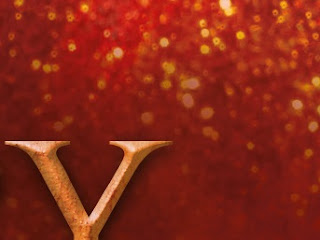Our topic at the SFF Seven this week is our most frequent story starter -- idea, milieu, character, theme, what-if, trope, editor request, etc.
It's an interesting question because when people ask me in interviews where I start with a story, I always say a particular character or sometimes a specific image. But in reading this week's suggestion, I realized that I've changed on this somewhat. It's not that the ideas themselves don't start for me with characters in a particular situation or image - that's absolutely true - but I also have a LOT of ideas, all dutifully listed in my notes. So, as far as a story starter is concerned, I've realized that it is largely affected by the "editor request" category.
By that I mean, what editors are looking for, what my agent thinks she can sell, what my non-compete agreements allow, or - for self-publishing - what I think readers are most likely to pay me for!
In short, what "prompts" me to start a story these days is a business decision. For traditional publishing, my agent (Sarah Younger at Nancy Yost Literary Agency) and I discuss what steps might best advance my career. We talk about goals, publishing houses, possible advance money. We also have to navigate agreements with my current publishers not to compete with the books I'm doing with them. I really love that she brings this business perspective to the table, because I am trying to making a living with my art.
This is something I discuss with authors when I'm advising them on making decisions about an agent. (I seem to be doing a lot that lately.) One key criterion in choosing an agent is do you want someone who will advise you on your next project this way, taking market considerations into account, or would you rather write your next story without input and give it to them when it's ready?
Both methods are valid, and different artistic temperaments work better with each, or somewhere in between. And agents fall out on the same spectrum.
Also, with my self-publishing career, I could make a choice based on my heart - what story do I really want to get out there? - and I've done that. But when I have an eye on paying the mortgage for the next year, I have to be practical and think about what I can write that I'll love, but that my readers will love, too.
A very long time ago, when I was an aspiring writer with a few publications but not much more, a pro writer friend advised me to enjoy that time. He said being able to write whatever I wanted without practical considerations was a freedom I wouldn't have once I became established.
It was good advice, because that's largely true. As a newbie author when you're still casting about for your voice and what story will work, there IS a tremendous freedom in that, a kind that's worth savoring.
At this point, however, I find that applying practical considerations isn't at all stifling, the way he implied. Instead it helps me filter out all the many wonderful ideas. AND it helps pay the bills.
Win, all around.
****
Speaking of win!
Our topic at the SFF Seven this week is our most frequent story starter -- idea, milieu, character, theme, what-if, trope, editor request, etc.
It's an interesting question because when people ask me in interviews where I start with a story, I always say a particular character or sometimes a specific image. But in reading this week's suggestion, I realized that I've changed on this somewhat. It's not that the ideas themselves don't start for me with characters in a particular situation or image - that's absolutely true - but I also have a LOT of ideas, all dutifully listed in my notes. So, as far as a story starter is concerned, I've realized that it is largely affected by the "editor request" category.
By that I mean, what editors are looking for, what my agent thinks she can sell, what my non-compete agreements allow, or - for self-publishing - what I think readers are most likely to pay me for!
In short, what "prompts" me to start a story these days is a business decision. For traditional publishing, my agent (Sarah Younger at Nancy Yost Literary Agency) and I discuss what steps might best advance my career. We talk about goals, publishing houses, possible advance money. We also have to navigate agreements with my current publishers not to compete with the books I'm doing with them. I really love that she brings this business perspective to the table, because I am trying to making a living with my art.
This is something I discuss with authors when I'm advising them on making decisions about an agent. (I seem to be doing a lot that lately.) One key criterion in choosing an agent is do you want someone who will advise you on your next project this way, taking market considerations into account, or would you rather write your next story without input and give it to them when it's ready?
Both methods are valid, and different artistic temperaments work better with each, or somewhere in between. And agents fall out on the same spectrum.
Also, with my self-publishing career, I could make a choice based on my heart - what story do I really want to get out there? - and I've done that. But when I have an eye on paying the mortgage for the next year, I have to be practical and think about what I can write that I'll love, but that my readers will love, too.
A very long time ago, when I was an aspiring writer with a few publications but not much more, a pro writer friend advised me to enjoy that time. He said being able to write whatever I wanted without practical considerations was a freedom I wouldn't have once I became established.
It was good advice, because that's largely true. As a newbie author when you're still casting about for your voice and what story will work, there IS a tremendous freedom in that, a kind that's worth savoring.
At this point, however, I find that applying practical considerations isn't at all stifling, the way he implied. Instead it helps me filter out all the many wonderful ideas. AND it helps pay the bills.
Win, all around.
* * *
Speaking of win!
I'm participating in the
Romance for RAICES fundraiser! You can win a critique from me and genre analysis - which means I'll help you figure out the right agent for you, if that's what you're looking for. Such a great cause!













































